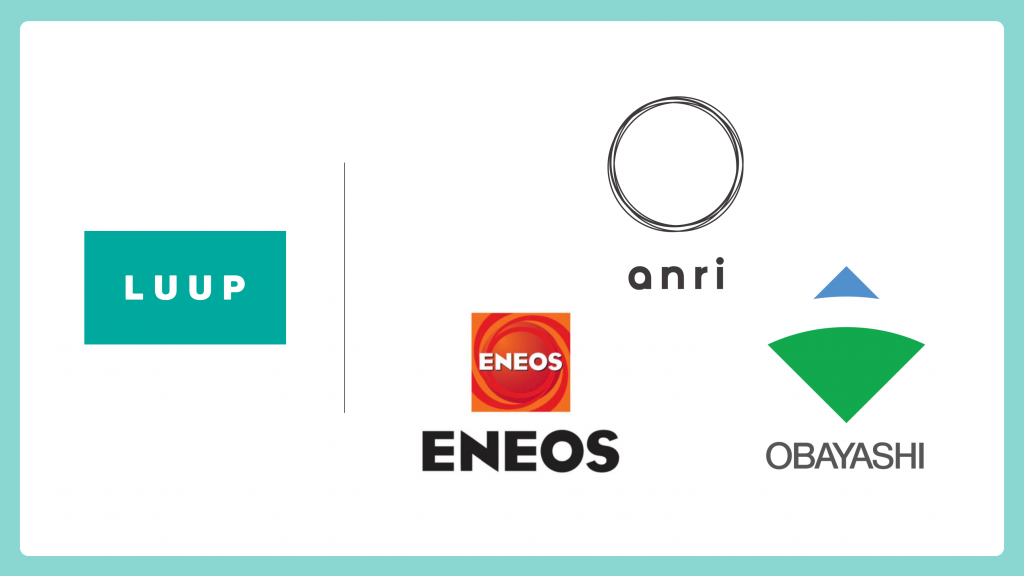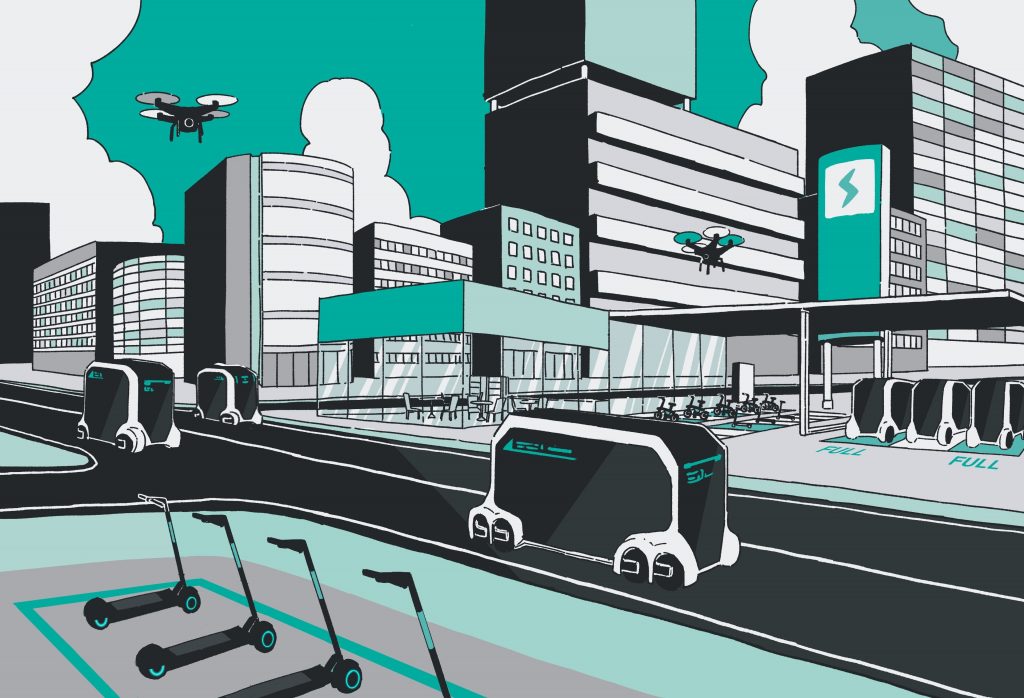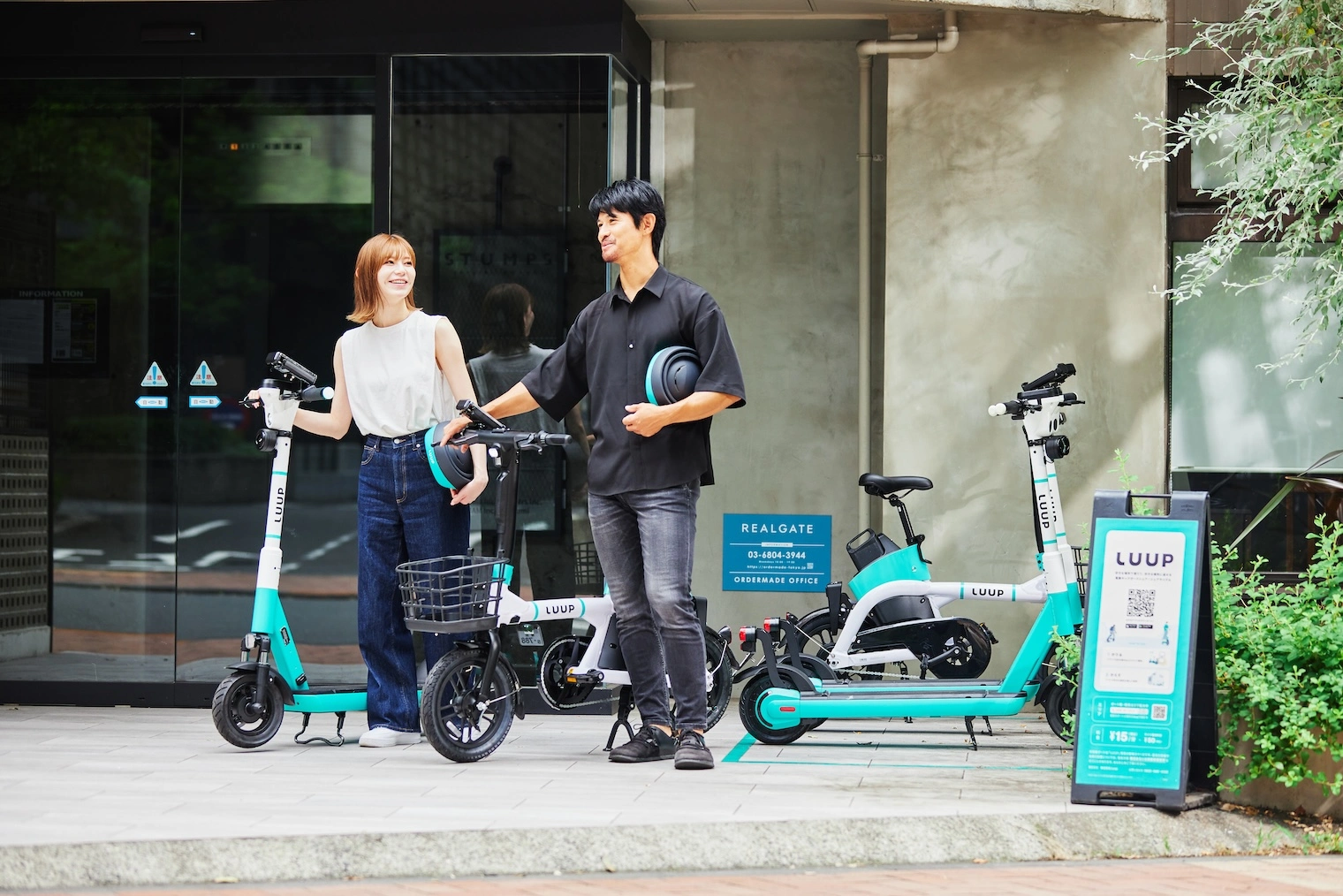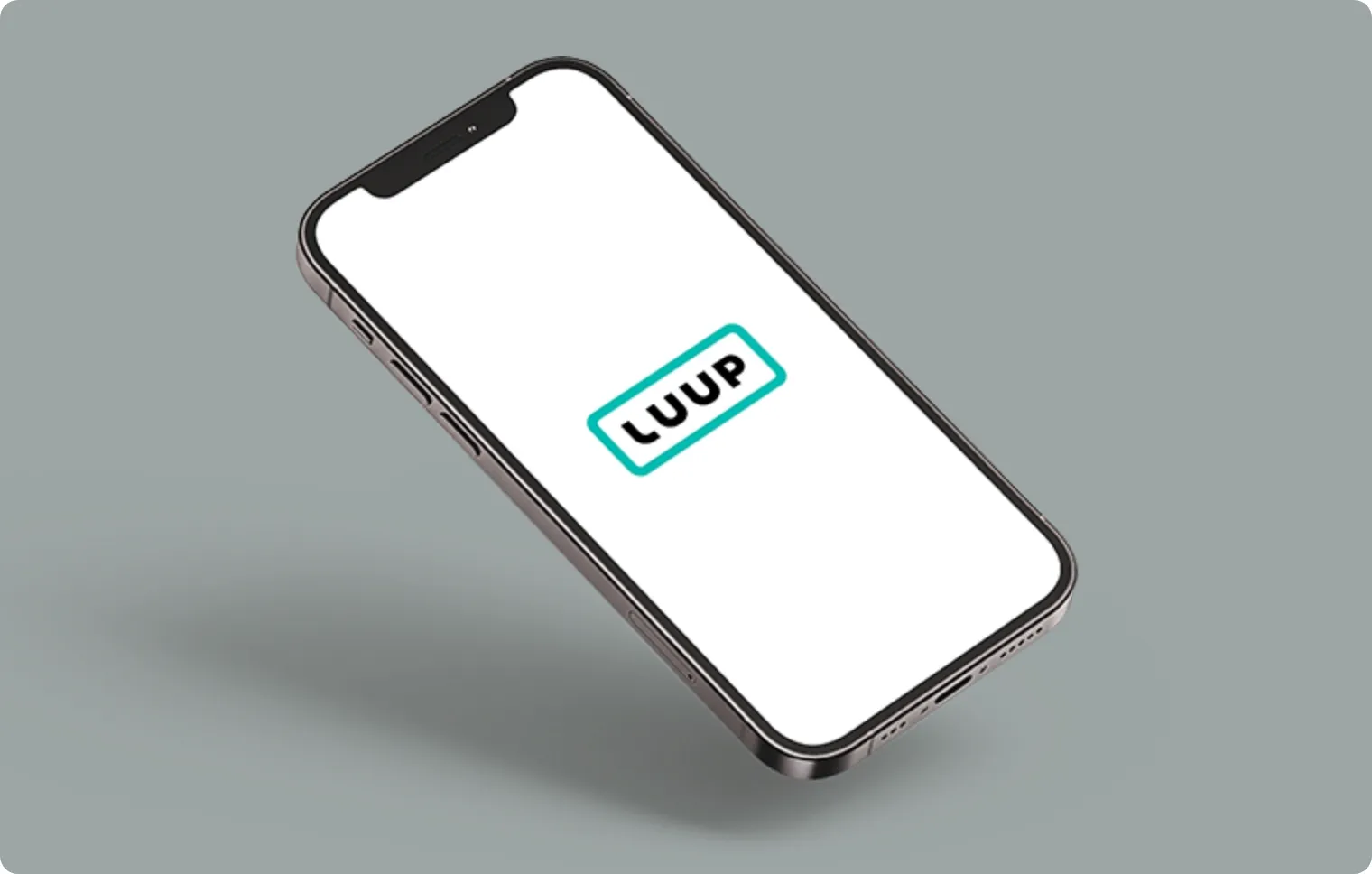Luup Raises 450 Million Yen from ANRI, ENEOS, and Obayashi Corporation
Accelerating partnerships with domestic infrastructure companies in "Energy" and "Urban Development”
Luup, Inc. (Head office: Shibuya-ku, Tokyo; President and CEO: Daiki Okai; hereinafter “Luup”), which operates “LUUP,” a sharing service of “electric micromobility,” has announced that it has conducted a third-party allotment of new shares in July 2020 with ANRI (Head office: Shibuya-ku, Tokyo; President: Anri Samata) as the lead investor, ENEOS Innovation Partners Co., Ltd. (Head office: Chiyoda-ku, Tokyo; President: Yasunori Yazaki; hereinafter “ENEOS Innovation Partners”), the CVC (Corporate Venture Capital) of the ENEOS Group, and Obayashi Corporation (Head office: Minato-ku, Tokyo; President: Kenji Hasuwa; hereinafter “Obayash”), raising 450 million yen in capital.
Together with the previous third-party allotment of new shares to several venture capital firms, several individual investors, and a business corporation, this round brings the total funding raised to 855 million yen.

Background of Financing
Luup is aiming to create a new short-distance mobility infrastructure in Japan through the sharing business of electric, compact, and single-passenger micromobility. As the first step, we have been operating the “LUUP” e-bike sharing service, which allows users to ride e-bikes from anywhere throughout the city and return them to their favorite places, since May 25, 2020 in six central wards of Tokyo: Shibuya, Meguro, Minato, Setagaya, Shinagawa, and Shinjuku. The second step that awaits is e-scooter sharing, followed by plans to introduce new electric micromobility that can solve the individual mobility issues for all.
The ENEOS Group and the Obayashi Corporation both have a long history of providing infrastructure in specific areas of Japanese society. The ENEOS Group is building an energy supply environment for society and aims to establish an optimal energy supply system for Luup’s mobility. Obayashi Corporation is engaged in construction, civil engineering, and development aiming to provide people with a better quality of life by offering construction services that are adapted to regional characteristics.
To achieve creating a short-distance mobility infrastructure, it is vital to build an energy supply system for our vehicles, and to provide the type and number of vehicles that meet the needs of the people, all in a format suited to the city. Based on this funding, we will work toward the development of new electric micromobility and future collaboration with the ENEOS Group and Obayashi Corporation.





